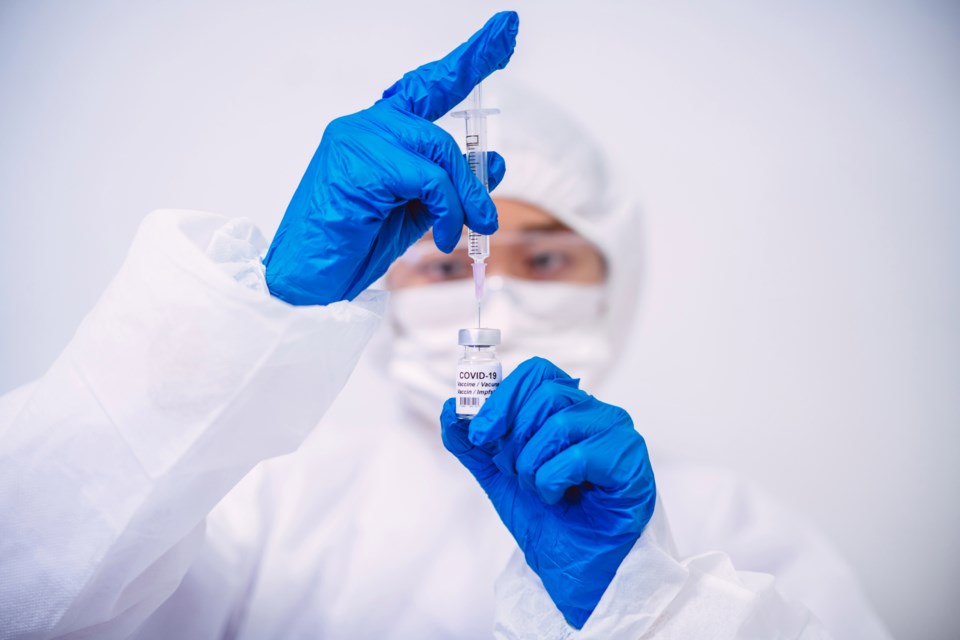Vaccine-related news has dominated the waterfall of coronavirus headlines in recent weeks and so far, it’s been refreshingly positive.
Multiple COVID-19 vaccines could be approved in the coming months, and Canada has deals to secure millions of doses of various candidates. The question then becomes, which one will Canada roll out, and why?
“I don’t think it’s going to be a winner-takes-all situation,” said Jean-Paul Soucy, an epidemiology PhD student at the University of Toronto. “Nothing is stopping them from them all being approved.”
So what happens if they do?
It would be an “unexpected blessing,” said Soucy, but one that might come with unique challenges.
Timing will be everything, he said.
“There are a million things that could speed things up or hold things back at this point,” said Soucy. “The biggest conversation now should be around planning.”
Challenges
The vaccine candidates expected in the new year are likely to pose significant logistical and distribution challenges.
The federal government is already seeking assistance from the military and provinces are currently working on their individual plans to identify where vaccines should be deployed.
All of the above will become more complicated should multiple vaccines be approved around the same time, said Soucy.
“You’ll probably have some places with one, some have another, depending on shipping and manufacturing, differences in population,” he said.
“Even if there are modest differences in effectiveness between the various vaccines, speed is going to be way more important to the effort.”
Kelly Grindrod, a pharmacist and professor at the University of Waterloo’s School of Pharmacy, said some of the challenges that lie ahead are “long-standing” for Canada.
Namely, vaccination tracking.
Canada does not have a national vaccine registry, and even at regional and provincial levels, “it’s really hard to track,” she said.
“There are multiple vaccines on the horizon, many of which require two doses,” she said. “So you’re not just tracking one dose, you’re tracking two. That’s going to emerge as a real challenge.”
Then there are approved vaccinators. Grindrod believes it’s here the web could become even more tangled.
In the past few years, Canada added pharmacists as vaccinators to increase capacity, especially in rural areas.
“But what happens when people are moving locations?” she asked. “Do you get one dose at your doctor’s office and one at the pharmacy? Or are they all given centrally, like at a hockey arena? This stuff has to be solved.”
A “good, robust tracking system” may provide more flexibility, she said.
Canada does have a national system that monitors adverse effects following immunization, which Grindrod said will become “critical” with a new vaccine. But as of now, it’s not set up for success.
“In an ideal scenario, this is all in one big connected system, but it’s not,” she said. “They’re two separate parts to the same problem.”
Opportunities
To experts, overall, the pros outweigh the cons.
“There are challenges we are facing, but what a great challenge it is to have many COVID-19 vaccine candidates,” said Alyson Kelvin, a Dalhousie University researcher who specializes in emerging diseases.
“One company cannot simply supply vaccines for the entire world.”
There are vaccine frontrunners, but no official approvals. Pfizer, Moderna and AstraZeneca all have trials to complete before the world can truly know the effectiveness profiles of each vaccine, and how they differ.
Pfizer’s announcement of its preliminary trial results showed its vaccine candidate was about 90 per cent effective. That was followed up about a week later with final trial results and safety data, indicating a 95 per cent effectiveness rate.
Then there was Moderna. The company announced preliminary results for its own vaccine on Nov. 16, which indicated an effectiveness of about 95 per cent.
AstraZeneca is the latest to join the positive-news party. The drugmaker said Thursday that its late-stage trials found its vaccine was well tolerated and produced a strong immune response in people over 70 — a significant development given vaccines often don’t work as well in older people, who are at highest risk of serious infection from COVID-19.
Once each successful candidate’s effectiveness is more clearly defined — and there’s more than one to choose from — there might be some variation in how they’re doled out to key populations, as identified by the National Advisory Committee on Immunization.
Final decisions will depend on vaccine efficacy, both Kelvin and Grindrod noted.
“If there is a difference in responses in, say, people over 65, which we often see, then you may see one vaccine being preferentially given to that demographic,” said Grindrod.
That’s why the recent developments in AstraZeneca’s vaccine candidate are so significant.
“It specifically shows the vaccine is effective in older people,” she said. “That’s a piece of information we’ve been waiting for.”
There will still be specialized research to do even after the first roll-out of vaccines, Grindrod added.
For ethical reasons, children and pregnant women are not part of the broader research at this point. Pfizer’s experimental coronavirus vaccine has only been tested in 12-year-olds, while Moderna says it would test teenagers “very soon,” followed by children under the age of 12.
With “multiple companies reaching similar midpoint check-ins,” Grindrod is hopeful there will be positive developments for targeted populations in the near future.
“This isn’t a one-off fluke,” said Grindrod.
“This is moving extraordinarily fast. It’s a week-by-week thing now, not a year-by-year thing. What we don’t have this week, we might have by next.”
— with files from The Associated Press
